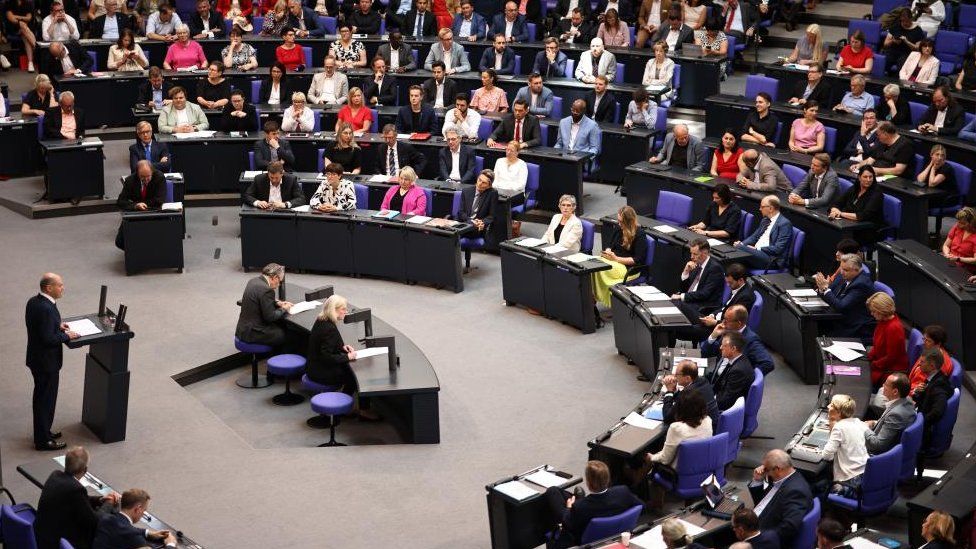While other nations work to limit immigration, the German parliament recently passed a novel law aimed at luring migrant workers to the country.
Thus, there will be less bureaucracy and fewer obstacles for migrant workers coming from outside the European Union.
Age, aptitude, credentials, and any ties to Germany will all be considered under a points-based system a la Canada.
Salary, educational, and German language proficiency requirements will all be lowered.
As a result, immigrants would find it simpler to enter Germany with or without a job offer. A perk is that you can bring your parents along, in addition to your spouse and kids.
A significant policy shift for Germany is this. The notion that Germany is a country of migration has been resisted by German governments for many years.
In the 1960s, the first batch of so-called "guest workers" from Turkey were regarded as temporary economic contributors who would soon depart.
Even though German society is becoming more diverse, conservative-led governments, such as Angela Merkel's, have had a difficult time accepting the idea of a society that welcomes migrant workers. In Germany, more than a quarter of the population is either foreign-born or has at least one parent who is foreign-born.
Business leaders in Germany are raising concerns about a labor shortage after years of low unemployment. An aging population that will soon begin retiring, including baby-boomers born in the 1960s, will make the issue worse.
Ministers express concern over the labor shortage as the biggest threat to the German economy and point out that there are already millions of open positions that need to be filled.

The new SPD-Green-liberal coalition made easing immigration regulations one of its centerpiece policies after Olaf Scholz's centre-left Social Democrat SPD party defeated Angela Merkel's conservatives in 2021.
Arguments over climate change policies have plagued this coalition between the business-friendly liberals and the Greens. On immigration, however, both parties are in agreement: the liberals want workers for the economy, while the Greens favor more human rights in immigration policy.
The debate in the legislature on Friday, however, was fierce. Conservatives abstained from voting in protest at the new law's provision allowing some rejected asylum seekers already living in this country to find employment.
The far-right AfD also abstained, expressing its party's growing nativism and its belief that Germany is a "homeland" rather than a country of "immigration.".
The view of mainstream society that Germany needs migrant workers is not shared by the AfD. However, the party is polling at previously unheard-of levels, perhaps even as a result of it.
The party scored the highest ever in the most recent ARD Deutschland Trend poll, reaching 19 percent this past week. SPD, the party of German Chancellor Olaf Scholz, is now only at 17%.
Regarding immigration, the political climate in Germany is polarized and volatile. The government has voted in favor of it, the economy requires it, and the government wants it. However, will all voters approve of it?







